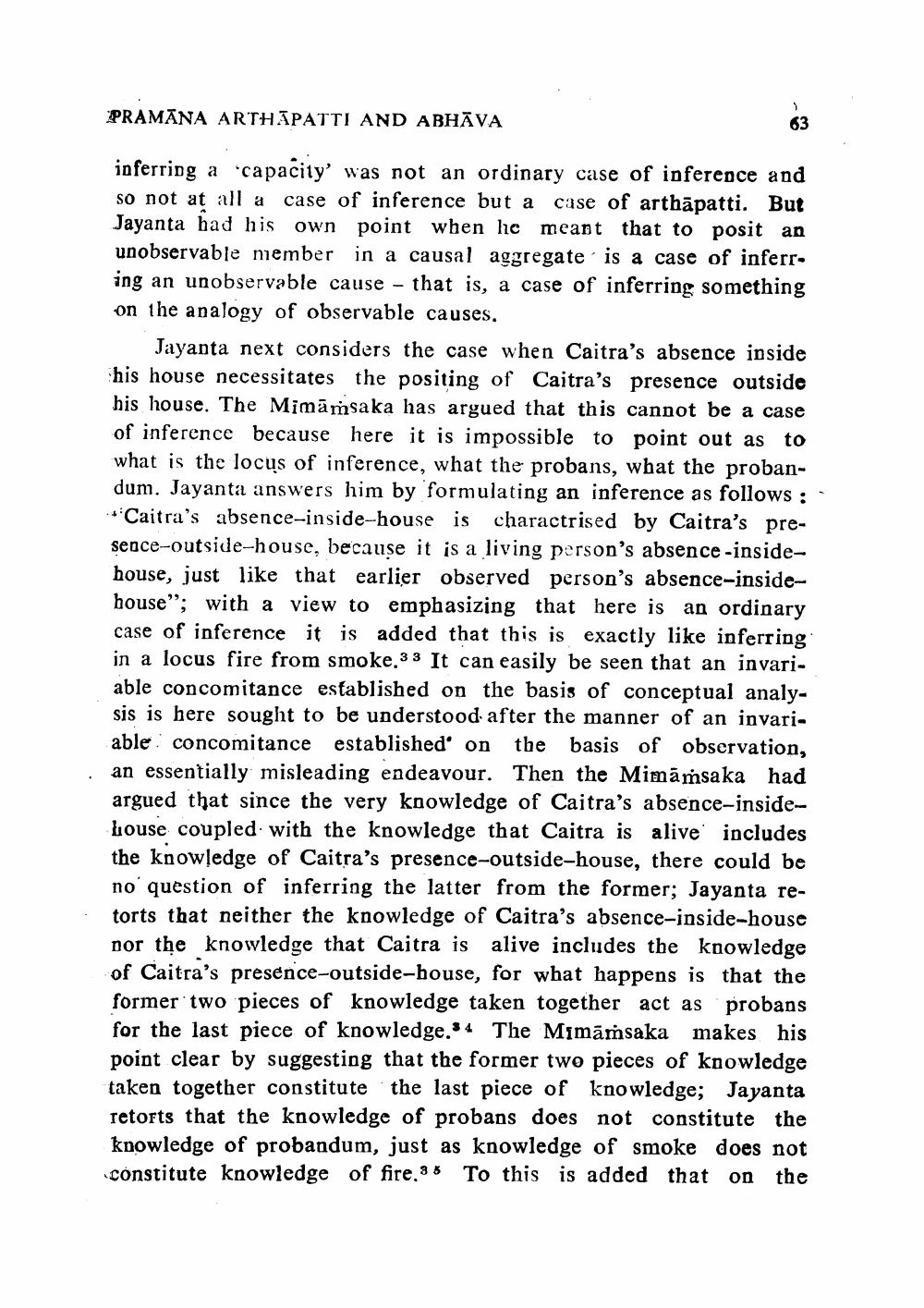________________
PRAMĀNA ARTHĀPATTI AND ABHĀVA
inferring a capacity was not an ordinary case of inference and so not at all a case of inference but a case of arthāpatti. But Jayanta had his own point when he meant that to posit an unobservable member in a causal aggregate is a case of inferring an unobservable cause - that is, a case of inferring something on the analogy of observable causes,
Jayanta next considers the case when Caitra's absence inside his house necessitates the positing of Caitra's presence outside his house. The Mimāṁsaka has argued that this cannot be a case of inference because here it is impossible to point out as to what is the locus of inference, what the probans, what the probandum. Jayanta answers him by formulating an inference as follows : - *Caitra's absence-inside-house is charactrised by Caitra's presence-outside-house, because it is a living person's absence-insidehouse, just like that earlier observed person's absence-insidehouse"; with a view to emphasizing that here is an ordinary case of inference it is added that this is exactly like inferring in a locus fire from smoke. 33 It can easily be seen that an invariable concomitance established on the basis of conceptual analysis is here sought to be understood after the manner of an invariable concomitance established on the basis of observation, an essentially misleading endeavour. Then the Mimāṁsaka had argued that since the very knowledge of Caitra's absence-insidehouse coupled with the knowledge that Caitra is alive includes the knowledge of Caitra's presence-outside-house, there could be no question of inferring the latter from the former; Jayanta retorts that neither the knowledge of Caitra's absence-inside-house nor the knowledge that Caitra is alive includes the knowledge of Caitra's presence-outside-house, for what happens is that the former two pieces of knowledge taken together act as probans for the last piece of knowledge. 54 The Mimāṁsaka makes his point clear by suggesting that the former two pieces of knowledge taken together constitute the last piece of knowledge; Jayanta retorts that the knowledge of probans does not constitute the knowledge of probandum, just as knowledge of smoke does not constitute knowledge of fire.38 To this is added that on the




